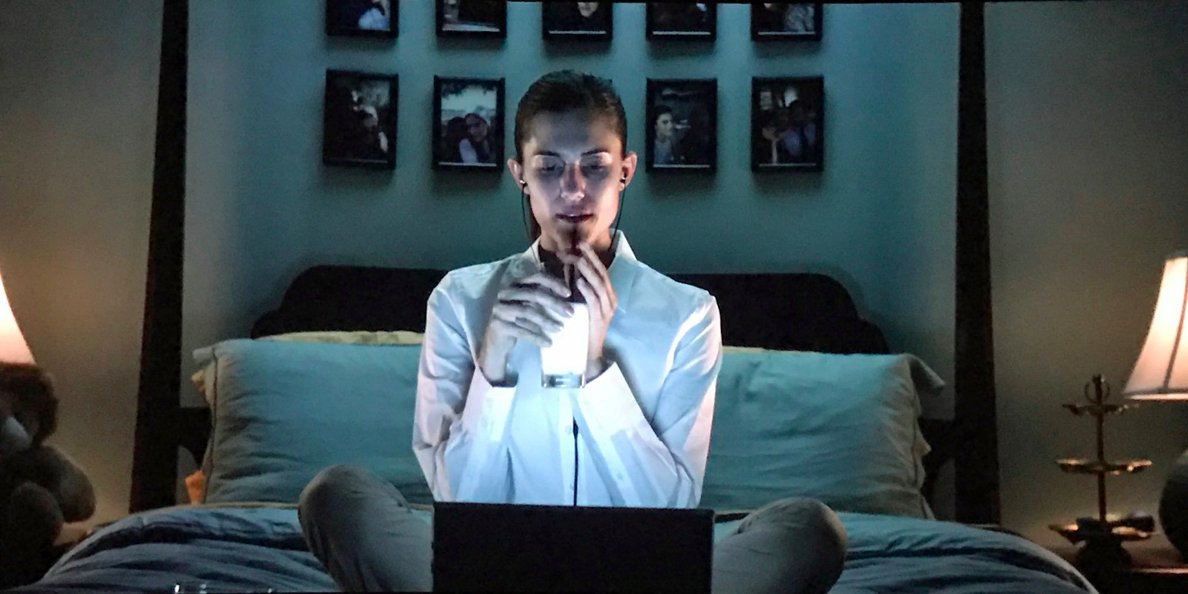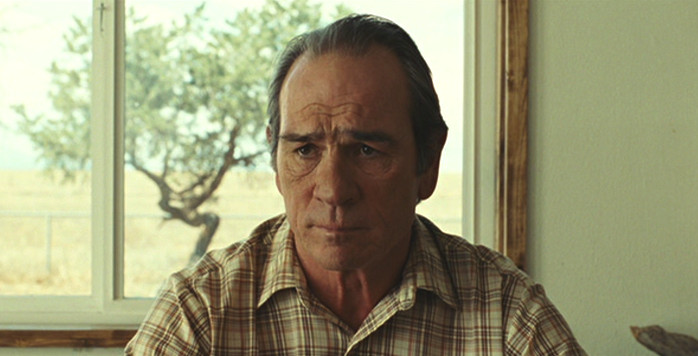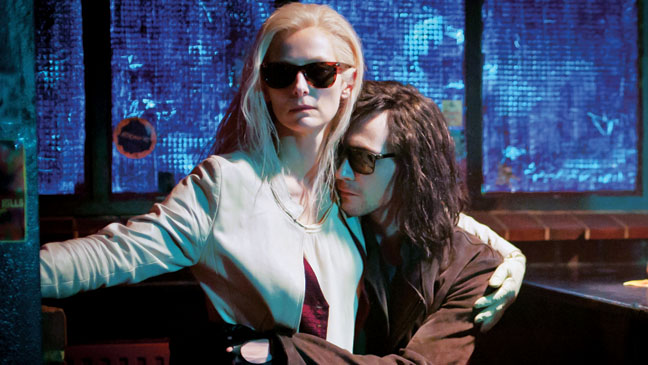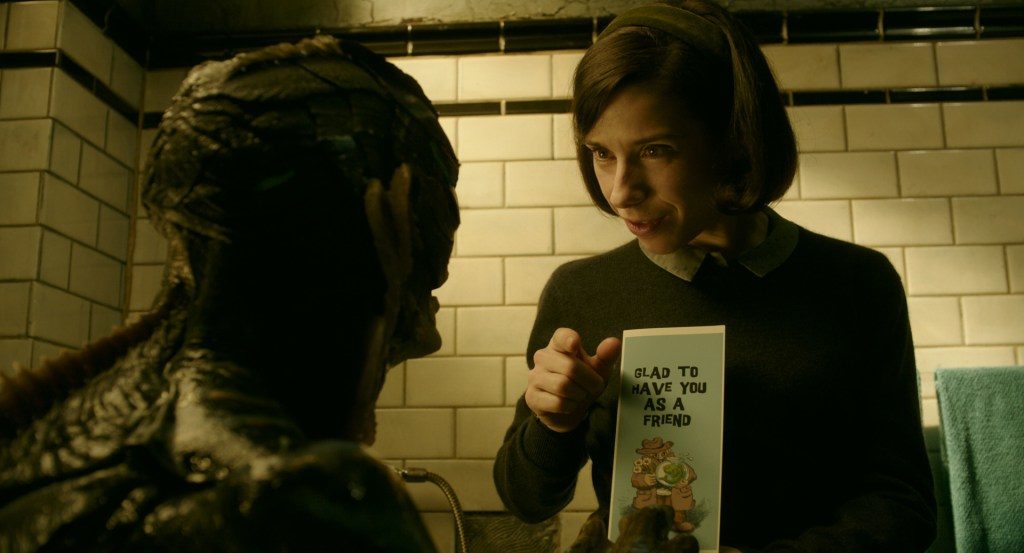6. Get Out (horror)

Yeah, you might be tired of hearing about Jordan Peele’s overnight success with Get Out (it’s still astonishing to think that it is his first screenplay and directorial effort within cinema), but its prominence over current pop culture is for good reason. Are there jump scares and sights of gore? Sure. This is where Peele is true to the common guidelines of what make a horror film.
Where Get Out differs is with its fixation on turning the brooding dread found in the genre into a statement on society: marginalized cultures deal with this fear even on a daily basis.
Before anything actually frightening happens (well, excluding the opening scene, which can still help instill an uneasiness for the duration of the film), you still feel uncertain about almost each and every situation. This arises from difficult discussions (usually with easy results at the beginning of the film) and watchful eyes.
Get Out is not just the phrase screamed by a character midway through the picture, because it is also an expression to both project these concerns to the masses and dismantle the stereotypes that get thrust on people for good.
7. Mulholland Drive (film noir)

David Lynch just adores paying tribute to his favourite styles while breaking them apart and gluing them incorrectly. Blue Velvet was a John Hughes high school film viewed through a nightmarish stare. Twin Peaks was a love letter to soap operas and cop dramas while spilling lighter fluid all over both and setting them ablaze.
Mulholland Drive works similarly, since Lynch is a sucker for film noir (after all, Gordon Cole’s name came from Sunset Boulevard). The detectives at the start of the film vanish very quickly (I do know this was meant to be a television show that never picked up, but the brief appearances still matter). The detectives for the rest of the film are the two female leads, of whom are both femmes fatale in their own rights.
The mystery being solved is up to you to solve, because the film (and the insert of some home release cases) are the clues you are piecing together. There is no downfall part, because the film is an entire downfall itself. The memories of one’s past are told through hyper-contrasting dreams and a fragmented series of images towards the end. Mulholland Drive is the ultimate neo noir of our times, because it itself is a mystery.
8. No Country for Old Men (westerns)

There Will Be Blood is also considerably a neo-western, but it is also debatably not. There is little to argue with No Country for Old Men being a neo-western, though.
This Coen brothers gothic western is frigid in nature, and follows the many towns the characters sift through (as opposed to the towns they try to make a name in). The treasure is not being raced for: it’s already found and picked up.
The old cowboy heroes here aren’t faring too well, as the never-ending life of crime is out running them. There aren’t any real cowboy showdowns; instead fate is decided by the flip of a coin and not who fires first.
The empty spaces are not to lead towards gunfire, but are usually the result of a fight that already happened that we were too late for. When we do see violence, it usually is very quick to the point that blinking will make you miss it (finally, an actual Western trope!).
However, the tools of choice include air pressured weapons, dogs, vehicles and more (but you’re not looking at actual gunplay). The west will always be wild, but here is a wildness in a new way.
9. Only Lovers Left Alive (vampire flicks)

This is a great take on a genre that was exhausted by the time it arrived. Jim Jarmusch turned the annoying niche genre into one of hyper creativity. It moves glacially, because the world would be this slow to beings that live for hundreds of years.
The vampires here actually display their vast knowledge and experiences as if they were actually defined by their many years alive. They are not squashed into stereotypical boxes where vampires are only obsessed by blood (and teenagers, apparently).
Can two people live for so long that nothing captivates them anymore? Can love ever expire if it is true? Only Lovers Left Alive tackles these questions in a different way that is not quite definitive (nor is it blatantly apparent, either).
It’s as if the film was a Before Trilogy kind of story that was based on discussions but happened to be based on two creatures that can survive for centuries. The results are so refreshing, you’ll forget that you are actually watching a vampire tale (until the more obvious parts, of course).
10. Pan’s Labyrinth/The Shape of Water (fantasy)

If anyone is obsessed with making actual fantasy films for adults (and not fetishized retellings of already-told tales), it’s Guillermo del Toro.
With Pan’s Labyrinth, he shows the hidden kingdom within the mind of a suffering child during a civil war. In The Shape of Water, he paints a story of acceptance during the height of the cold war.
Both films have leads that dabble in fantasy realms. Ofelia keeps escaping the horrors of her real life by entering a magical labyrinth and partaking in a test to prove her worth. Elisa keeps visiting a captured being during her work shift as part of the maligned help in a government facility.
The tribulations Ofelia go through are questionably within her mind (but some parts, like the chalk door, do make us wonder), while Elisa’s encounters are seemingly more real (except for the debatable ending). Either way, both leads are looking for ways out of their current predicaments. Ofelia is going to have a monstrous stepfather against her control. Elisa, while cheerful, will never be accepted beyond her current predicament.
Guillermo del Toro creates imaginary worlds (the underworld in Pan’s) and imaginary takes on our own world (‘60s America). The gore in his films snap us back to reality, but, otherwise, there aren’t many mature films that make us feel like a child discovering the world again like his do.
Author Bio: Andreas Babiolakis has a Bachelor’s degree in Cinema Studies, and is currently undergoing his Master’s in Film Preservation. He is stationed in Toronto, where he devotes every year to saving money to celebrate his favourite holiday: TIFF. Catch him @andreasbabs.